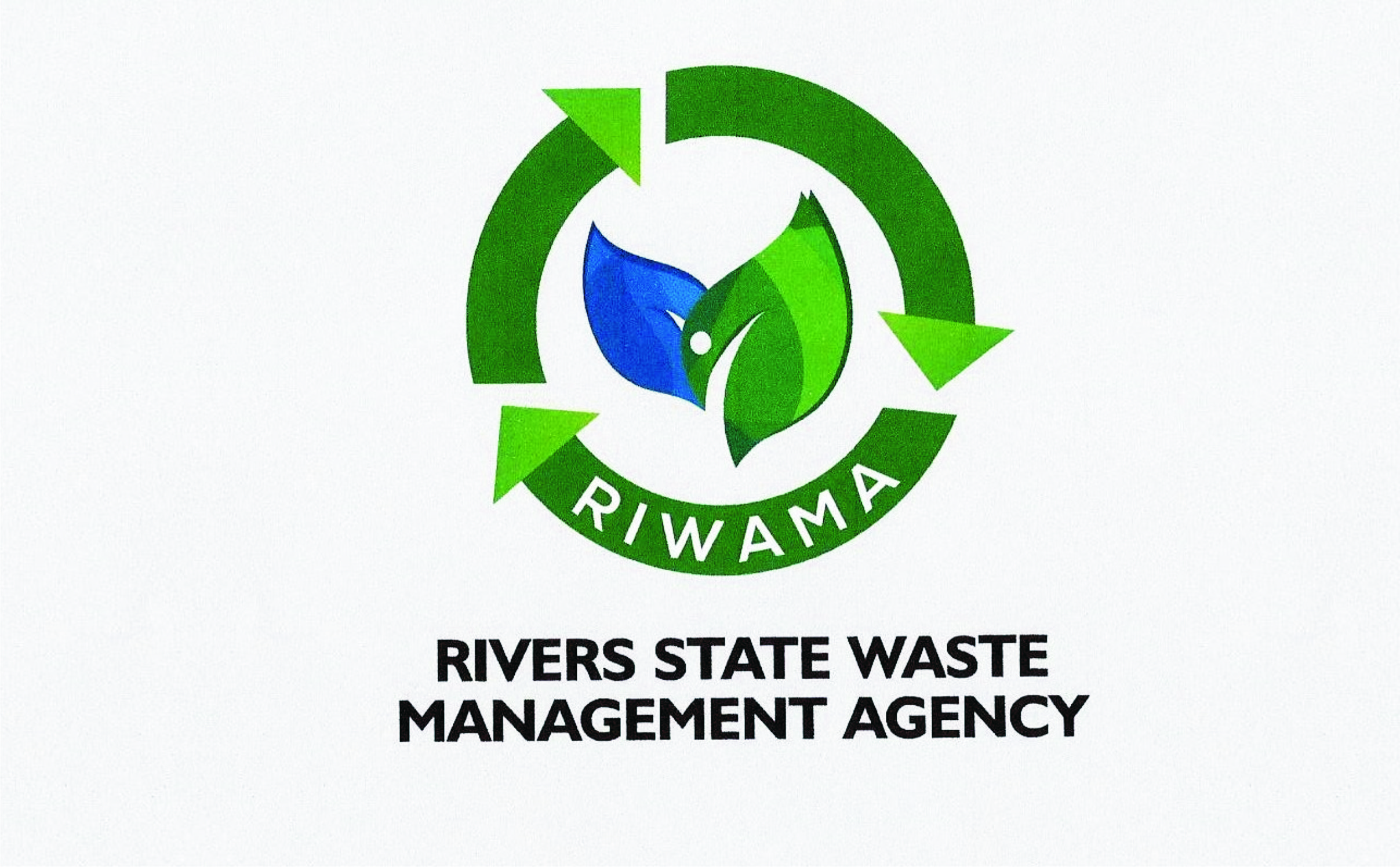News
Twitter Ban: ‘Be Ready To Build Thousands Of Prisons For ‘Erring’ Nigerians’
Human Rights activist and Senior Advocate of Nigeria (SAN), Chief Mike Ozekhome, has asked the Federal Government to be ready to build more prisons to accommodate “erring” Nigerians who are likely to bypass the ban on Twitter usages.
In a statement made available to newsmen, yesterday in Abuja, Ozekhome also revealed what he described as a new game plan by the Federal Government to arrest the opposition, rights activists, dissenters, plural voices, and perceived enemies to the ban.
He decried the speed with which the government announced the ban without thinking about the economic consequences.
He said, “The Attorney-General of the Federation and Minister of Justice, Abubakar Malami, SAN, has just ordered the Director of Public Prosecution of the Federation to immediately prosecute offenders contravening the Federal Government’s ban on twitter operations in Nigeria. Indeed, he wants the DPP to liaise with the Ministry of Communications and Digital Economy, the National Communications Commission (NCC) and other relevant government agencies to ensure speedy prosecution of offenders without further delay.
“How I wish that Malami’s APC Government, has displayed such alacrity and sense of urgency on the grave insecurity challenges of the country; the parlous economy and the mounting corruption ravaging our land.
“Malami did this with Lai Mohammed apparently being aware that many knowledgeable Nigerians had started to use different Virtual Private Networks (VPN) to clearly bypass the blockage.
“This government must be ready to build thousands of prisons across all the nooks and crannies of Nigeria so as to accommodate the deluge of ‘erring’ Nigerians.
“This government does not appear to have weighed carefully the serious implications of its actions and the likely ricocheting effects. Many Nigerians run global businesses with links and business partners across the world. They carry on business using the social media of Twitter. Secondly, many Nigerians, especially the jobless youth who have been rendered destitute by this thus anti-masses government.
“They rely heavily on legitimate income realized from the platform through advertisement of their products and services and act on behalf of their not so ICT-compliant clients who desire to reach out to the world banning Twitter is akin to what this government did in a kneel-jerk action on coming to power whether thoughtlessly banned Nigerians from operating their domiciliary foreign accounts. The naira has never recovered from this shock treatment.
“Perhaps, more important is that the ban outrightly denies citizens of their individual and collective right to freedom of speech and right to freedom of expression and the press, contrary to section 39 of the Constitution. The cumulative effect of these negative acts is a serious blight on Nigeria’s image both at home and abroad.”
Revealing a conspiracy and game plan to arrest some Nigerians who are eager to resist the ban, Ozekhome recalled that the courts have been under lock and key due to the industrial strike action by the Judiciary Staff Union of Nigeria (JUSUN).
Contrary to his earlier stance, Ozekhome called on JUSUN to call off its strike, noting that the judges whom the workers were fighting for had carried on, delivering judgments.
“In all these, the agitated citizens are eager to go to court (section 6 of the Constitution), to challenge these outrageous infractions of their rights. Then, they suddenly realize that the doors to the courts are firmly shut, and put under lock and key by JUSUN workers. So, they lick their oozing wounds. Meanwhile, the same courts being protected, are busy every day, delivering judgements (physical and virtual), on matters already pending before the JUSUN strike commenced.
“So, who are these workers that prepare the files, take them to Judges and create the enabling environment for such sittings, including fixing the zoom meetings? How and where do they gain access to the courts’ strong rooms, filing cabinets and court processes, to aid the Judges? Just how? I cannot understand. Or, can you?
“I have now changed my views and stance. My new stance is now occasioned by the frequency of series of curious events (some quite frightening), emanating from the government and its operatives in the last two weeks.
“Let us not continue to be used by fifth columnists as pawns in a game of musical chairs. This government will very shortly likely crack down on the opposition rights activists, dissenters, plural voices and perceived enemies. There will be no courts to run to with a view to obtaining any remedy. They are all firmly locked. The JUSUN strike has therefore outlived its usefulness and purpose. JUSUN, call off the strike now”, he said.
In the event the strike is not called off immediately, Ozekhome advised Nigerians to seek redress in regional courts.
“All hope is not lost, even with the JUSUN strike. There is some respite here.
Any Nigerian arrested or detained should immediately proceed to the sub-regional West African Court situate in Abuja. The African Charter on Human and People’s Rights is there to protect the rights of citizens of Nigeria. The Court that operates it (the West African Court) is there right now, fully operational. The last time I checked, we are not in the Hobesian state of nature where life was solitary, nasty, short and brutish”, he said.
News
Enforce Discipline In Legislative Service, Fubara Charges New RSHA Commission

Rivers State Governor, Sir Siminalayi Fubara, has charged newly sworn-in chairman and members of the State House of Assembly Service Commission to achieve greater productivity, promote highest standard and insist on best practices in the discharge of Legislative services.
Governor Fubara also urged them to ensure that parliamentary staff are put through disciplinary conducts in the discharge of their duties in the service.
Governor Fubara gave the charge shortly after the chairman and members of the Rivers State House of Assembly (RSHA) Service Commission were sworn-in at the Executive Chamber of Government House in Port Harcourt, last Friday.
The Governor also sworn-in the chairman and members of the Rivers State Local Government Service Commission.
Hon Tamunosisi Gogo-Jaja, is the chairman of RSHA, with Dr Kennedy Ebeku, Hon. Soberekon Clark, Hon. Jones Ogbonda, and Hon Kingston Sylvanus as members.

For the Rivers State Local Government Service Commission, Hon GoodLife Ben will serve as the chairman, with Chief Emmanuel G. Jaja, Ms. Betty Warmate, Barrister Jerome Chimenem, Hon Prince O. Ohochukwu, Barrister Philip Okparaji, and Christian Amadi as members.
Governor Fubara explained that the constitution and swearing-in of the respective commissions were delayed with the hope that all former members of the political block will come back together but quickly added that such expectation is dashed now as governance has to move on.
He said: “As it stands now, our position is very clear. The ship that we are onboard is clear, and the activities of governance have to continue.
“So, this swearing-in is to give these two units of government – particularly, the House of Assembly Service Commission, a formal commission so that you can start carrying out the activities of promotion, discipline and every other thing that has to do with the legislative staff activity.”
Governor Fubara emphasised: “This assignment is not business as usual. You have to take full charge, and you have to ensure that there is discipline in the service.”
Speaking on the Local Government Service Commission, Governor Fubara said an acting Chairman was previously appointed to hold brief while the situation was being studied but quickly added that as it stands now, a full fledged commission has to be constituted to steer affairs.
Governor Fubara stated that the various Local Government Councils have been mandated to commence payment of the N85,000.00 Minimum Wage to their workers.
However, Governor Fubara said that mandate had met with series of complaints about ghost workers or inflated payroll staff list, which required proper scrutiny in order to ensure that only genuine workers benefit.
He said, “You must ensure that you support the Local Government Chairmen to get rid of those fake names in the payroll, so that when they implement the N85,000.00 Minimum Wage, it will not be too much burden on them.
“I am not saying you should go and dismiss people who are genuinely employed. Hear me very well: there must be proper scrutiny to be sure that whoever is there must be a genuine civil servant employed by the commission, and must have met all the conditions.”
Governor Fubara also directed the commission to address the issue of staff stagnation on a particular grade level, which is an ugly practice, and make sure those due promotion truly benefit from statutory progression in the service.
He said, “The second side is, you have the issue of promotion, you must also ensure that they are adequately promoted so that they can start enjoying like their counterparts in the mainstream.
“There is too much dragging of their promotion, for somebody to be on Grade Level 4 for over 30 years is not good. It is not good news.”
Governor Fubara maintained: “I believe strongly that you will not allow yourselves to be corrupted like those stories that we used to hear. Make sure that there is acceptable level of discipline and standard in the Local Government Service Commission.
“I also believe strongly that you are already prepared for this assignment, and since you are prepared, I will charge you to go do what you know how to do best. Be assured that the government will give you all the necessary support.”
Governor Fubara noted that the task before them could seem Herculean but they should be assured of support from his administration to drive the assignment given to them to reckonable success.
News
Be Innovative In Waste Management, Fubara Tasks RIWAMA ….. Inaugurates Six-Member Board

Rivers State Governor, Sir Siminalayi Fubara, has said that the open dumping of wastes has to be replaced with a more innovative and efficient disposal method so that wastes can be taken off the streets and turned into income-yielding ventures.
Governor Fubara made the assertion while giving charge to the newly constituted Board of Directors of the Rivers State Waste Management Agency (RIWAMA) and its Managing Director at Government House in Port Harcourt, last Friday.
The Board members included Engr. Edward Namiesimagh as the chairman, while Hon. Bishop Best, Dr. Ipalibo Sogules, Richard Mazi, and Civian Y. Nwibari are members, with Hon. Orukwem Amadi-Oparaeli as the Managing Director.
Governor Fubara said waste disposal and management have remained a major global concern, adding that over the years, successive administrations in the State had struggled to take wastes off the streets but ended up taking them to other dumpsites where they constitute nuisance and environmental hazards.
He said, “Today, I am here putting a team together to look at these challenges differently. Let it not be the regular pattern whereby at the end of the month, you come to collect money from me for payments.
“Don’t indulge in appointing your friends as sweepers, evaluators of debris, then you start building hotels, or buying big cars. Let us go beyond that and tap into the potentials of waste management.
“It is an area in this world that there is so much money in. It is an area that creates employment, and generates huge revenue. It is not just depending on what I will give to you. Consider what change you’ll bring to the work, that’s what I want to see in Rivers State.”
Governor Fubara told them that they were carefully selected because of the experiences they had garnered in their previous public assignments, and urged them to replicate their successes on a bigger scale with the new appointment.
The Governor advised them to work assiduously to bring back the beauty of Port Harcourt with effective waste disposal drive, and ensure the city is clean and green to reflect its old Garden City status.
Governor Fubara emphasised: “If not for our effort, today, some people could have even changed it to become Garbage City. But God forbid, it is not going to be in our own time.
“I want you to understand that I feel very unhappy with the sight I see. When you are driving into Port Harcourt, one of the first things that will welcome you is the waste dump that you see along the Obiri-Ikwerre-Airport Road. I don’t feel happy about it.
“Your first task should be to relocate it. That particular place needs to be completely closed because it is the entrance to the city. You need to get a new place where we can relocate our wastes.”
Governor Fubara urged them to be more responsible as they discharge their assignment, saying that it is more important to see results than being merely preoccupied with the aura of office.
The Governor warned that he will not hesitate to relieve anyone found wanting, and return the agency back to the era of a sole administrator running the affairs of the agency.
He noted, “This team cuts across all the Senatorial Districts, so that whatever you are going to do there, you ensure it spreads. While you are also carrying out this job, let it be known to the world that the interest of everybody in the State is accommodated.
“It shouldn’t be one-sided. Make sure that all our supporters who have the capacity and competence to do little jobs in the refuse area are also accommodated. I am serious. I have no doubt that you are going to impress us. So, I charge you to do all you can to make sure that the face of Port Harcourt changes when it comes to the issue of refuse.”
Governor Fubara told them to be good ambassadors of his administration as they interface with members of the public while also changing the face of refuse management in the State.
In his acceptance speech, Chairman of Rivers State Waste Management Agency (RIWAMA), Engr. Edward Namiesimagh, expressed appreciation to the Governor, on behalf of members of the Board, for finding them worthy to handle such difficult but surmountable task of keeping Port Harcourt clean.
He said, “When I see the calibre of people you assembled, all of us are happy, and I assure that with our period of experience in our fields and politics and interaction with people and the zeal that comes with this job, we assure you that we will do our best to make sure that the policy of restoring Port Harcourt to its lost glory is achieved with your support.”
News
Fubara Graces Agric Commissioner’s Wedding At Ciwa

Rivers State Governor, Sir Siminalayi Fubara, on Saturday, graced the solemnization of Sacrament of Matrimony between Engr Victor Kii, and his heartthrob, Engr Mercy Mankwe.
Engr Kii is the Rivers State Commissioner for Agriculture.
The wedding ceremony was held at Our Lady of the Holy Rosary Chaplaincy, Catholic Institute of West Africa (CIWA), along the Port Harcourt-Aba Expressway, Rumuibekwe in Obio/Akpor Local Government Area.
In his Homily, the Chief Celebrant, Bishop of the Catholic Diocese of Sokoto, Most Rev Matthew Hassan Kukah, said marriage is an enduring union, ordained by God for two persons – man and woman – who have decided in love to live their lives together.
Bishop Kukah stated that people in such Christian marriage should know that they are in an indissoluble union, bounded by faith, and advised them to gladly make personal sacrifices in tolerance and care for each other so that they can have a healthy, successful and rewarding life together.
In his vote of thanks, co-celebrant, Very Rev Monsignor Pius Kii, showered commendations on the Governor for his fatherly support to the family, and the numerous landmark achievements in various sectors across the State.
The clergy and the church took the opportunity to pray for the success and good health of Governor Fubara and his administration, and urged God to protect, guide and defend him at all times.
The church also presented 50th birthday cake and gifts to the Governor, and also sang birthday songs to accentuate the celebration.
Highlights of the event were the signing of the marriage register by the new couple, Victor and Mercy, and the cutting of the 50th Birthday cake by the Governor.

